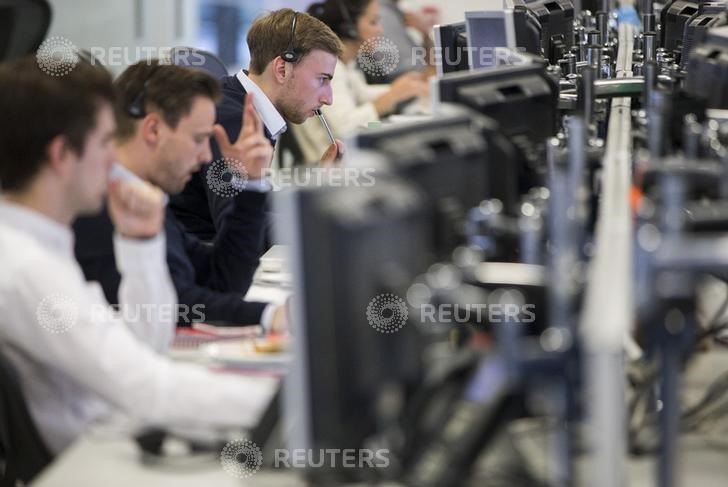(Bloomberg) -- President Donald Trump is touting the virtues of a trade war. In the $5.1 trillion-a-day currency market, the yen has emerged as a clear winner from the escalating rhetoric.
The latest move pushes forward the administration’s trade agenda, after it took similar actions on other goods this year and jawboned the dollar lower. The potential hit to U.S. and global growth from protectionism has sent stocks lower, initially drove bonds higher and buoyed the yen. Investors and strategists are wagering there’s more of the same to come.
The unfolding events remind Chris Turner, global head of currency strategy at ING Groep (AS:INGA) NV, of the early 1990s when the U.S. took protectionist steps against Japan.
“We might now have people dusting off their forecasts for the dollar-yen to reach 80 in 2019,” said Turner, whose forecast stands at 100 for now. “Investors may be front-running potential shifts in portfolio capital into 2019 and be saying today it’s worth increasing hedge ratios, and the best currency to do that is long yen.”
The yen surged to a then-record high in 1995 of 79.75 per dollar. The currency has long been seen as a haven during times of turmoil in part because the nation’s high savings rate has traditionally allowed Japan to be less dependent on outside sources of funding during trade and political disputes.
The tariffs could reduce U.S. growth by as much as 0.2 percentage point this year, and further risk lies in how trading partners respond, Barclays (LON:BARC) Plc economists said.
The greenback slid Friday as traders sought refuge in the yen, Swiss franc and euro. Trade-sensitive currencies, such as the Canadian dollar, also fell.
Policy Boost
The yen also got a boost Friday after Bank of Japan Governor Haruhiko Kuroda said the central bank will start thinking about how to exit its unprecedented easing around fiscal year 2019. The exchange rate is now 105.48, with the yen appreciating 1.3 percent since the end of last week.
The Bloomberg Dollar Spot Index is down about 2.5 percent this year, adding to its 9 percent plunge in 2017.
At the World Economic Forum meeting in January in Davos, Treasury Secretary Steven Mnuchin endorsed the dollar’s recent decline as a benefit to the American economy. Though he later tried to clarify those comments, investors have interpreted the remarks as a green light to sell the dollar.
Richard Benson, a managing director and head of portfolio investments at London-based Millennium Global Investments, also says classic havens besides the greenback stand to benefit.
Growth Risk
“It’s a negative for global growth,” said Benson, whose firm manages $14 billion. “This is broadly dollar-negative but it’s also not an emerging-market positive.”
Benson is long the euro versus the dollar and the pound, and is wagering against growth-oriented currencies in Asia, including the Australian dollar and China’s yuan.
Historians blame a trade war during the Great Depression, starting with the U.S. passage of the Smoot-Hawley Tariff Act in 1930, for deepening the worldwide economic slump.
George Saravelos, global co-head of foreign-exchange research at Deutsche Bank AG (DE:DBKGn) in London, said Trump’s tariffs represent a shift from tough rhetoric to action.
“This is a ‘soft dollar’ policy by proxy,” Saravelos wrote in a note. “Tariffs are a negative supply shock that increase inflation but lower growth, a bad mix for a currency,” said Saravelos, who’s bearish on the greenback.
